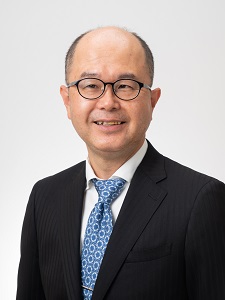ABOUT
※The English website will be renewed in April 2026.※
Greetings from Dean
Dean, Graduate School of Science and Technology, Kanazawa University
SETO Takafumi

Modern science and technology continues to evolve to ever higher levels thanks to revolutionary developments in information and communication technology (ICT) and artificial intelligence (AI). However, modern society faces many "difficult problems that cannot be easily solved," such as repeated natural disasters and energy and environmental issues. In order to solve these complex and difficult problems and create a future society in which each individual can achieve diverse well-being, we truly need people with high aspirations and deep expertise who can lead the development of science and technology and overcome difficult challenges.
Kanazawa University Graduate School of Science and Technology consists of seven majors corresponding to the seven schools of the Faculty of Science and Engineering (Bachelor's Program) for both the Master's and Doctoral Programs. The Master's Program (usually 2 years) leads to a Master's degree, followed by the Doctoral Program (usually 3 years) leading to a Doctoral degree. The Master's Program further develops the basic knowledge of science and engineering acquired during the Bachelor's Program, and cultivates comprehensive and interdisciplinary specialists and researchers with rich originality. Those who have completed the Master's Program are strongly encouraged to proceed to the Doctoral Program. The Doctoral Program further deepens research in a specific field of expertise, and in cooperation with international research networks and industry, cultivates researchers and engineers with world-leading high research capabilities and global activity. Our university also has doctoral support programs in place, including the Kanazawa University Doctoral Research Personnel Support and Research Strengthening Strategy Project (HaKaSe+).
In addition, Kanazawa University is home to several research institutes, including the Nano Life Science Institute (NanoLSI), which was selected for the Ministry of Education, Culture, Sports, Science and Technology's World Premier International Research Center Initiative (WPI), the Nanomaterials Research Institute (NanoMari), and the Advanced Manufacturing Technology Institute (AMTI), as well as research centers such as the Institute of Nature and Environmental Technology and the Advanced Research Center for Space Science and Technology, Faculty of Science and Engineering.
The Graduate School of Science and Technology cooperates with these institutes and research centers to contribute to society by disseminating the world's most cutting-edge research results and nurturing the human resources who can realize them.
The highly specialized human resources that society needs are independent researchers and engineers who can identify social and academic issues, find ways to solve complex and difficult problems, and carry out research in collaboration with society. In this graduate school, you will master your own academic field, and at the same time, you will courageously step out into related fields, society, and the world. This will enable you to gain a deeper understanding of the social significance of your field of expertise and a more holistic perspective. Together with the faculty and staff of the Graduate School of Science and Technology, you will master natural science, create the society of the future, and aim to become a human resource that contributes to society.

